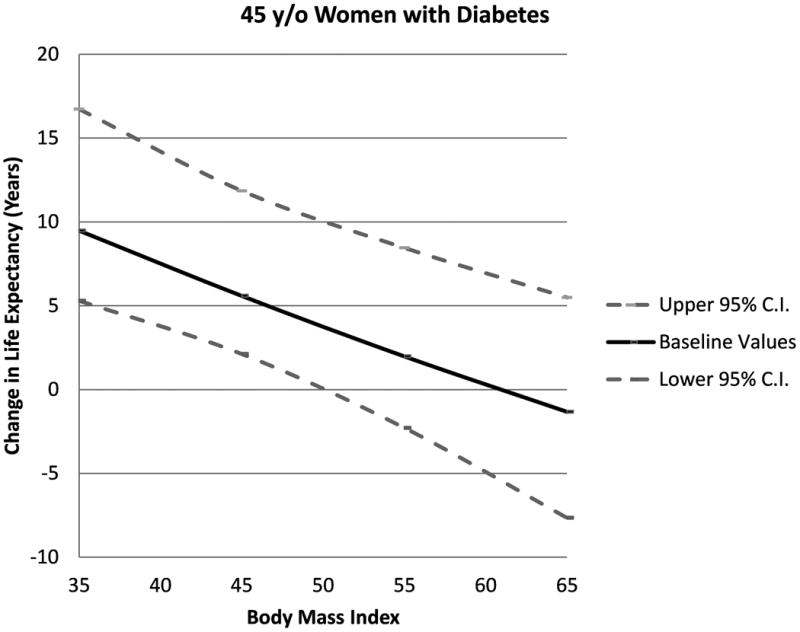Life Expectancy After Bariatric Surgery
For individuals struggling with severe obesity, bariatric surgery can offer a new lease on life through significant weight loss. However, many prospective patients wonder about the long-term effects and life expectancy after undergoing such a major procedure. In this article, we’ll explore what the research says about long-term outcomes and life expectancy after bariatric surgery procedures like gastric bypass, and gastric sleeve.
Is Bariatric Surgery Safe Long Term?
While any surgery carries risks, bariatric surgery procedures are considered safe overall when performed by an experienced surgeon at an accredited facility. Potential complications include excessive bleeding, infection, and adverse reactions to anesthesia, which can occur with any major operation.
The long-term safety really depends on how well the patient adheres to dietary guidelines, takes recommended supplements, and maintains an active lifestyle after surgery. With proper follow-up care and lifestyle changes, most bariatric surgery patients do very well long-term according to studies.
Average Lifespan after Bariatric Surgery
Numerous long-term studies have demonstrated that bariatric surgery can significantly extend a person’s life expectancy compared to those living with untreated severe obesity.
According to the research by PubMed, for a 45-year-old female patient with a body mass index (BMI) of 45 kg/m2, who has diabetes but no history of hypertension, coronary artery disease, or congestive heart failure, undergoing bariatric surgery could lead to a significant increase in life expectancy.

The study estimated that this base case patient would gain an additional 6.7 years of life expectancy by undergoing bariatric surgery. Specifically, the patient’s life expectancy with bariatric surgery was projected to be 38.4 years, compared to 31.7 years without the surgery.
Therefore, the research suggests that for a 45-year-old obese woman with diabetes but no other major comorbidities, bariatric surgery could potentially extend her lifespan by nearly 7 years, highlighting the potential life-prolonging benefits of this surgical intervention in carefully selected patients with severe obesity and related health conditions like type 2 diabetes.
In the Swedish Obese Subjects Study, it was found that individuals undergoing bariatric surgery experienced a longer life expectancy compared to those receiving standard obesity care.
Can You Live A Long Life After Bariatric Surgery?
Absolutely – if patients make the necessary sustained lifestyle adjustments for long-term success after surgery, decades of healthy living are very possible. This involves remaining vigilant in taking nutritional supplements, sticking to a high-protein, low-calorie diet plan, and incorporating regular exercise.
Research shows that patients who maintain healthy diet and activity habits experience lasting health improvements and lower risk of dying from obesity-related causes like heart disease, stroke, and cancer compared to those with untreated obesity.
As per research published on PubMed, a 10-year follow-up study found that gastric sleeve surgery resulted in significant and long-lasting weight loss, coupled with a substantial improvement in quality of life for patients.
What Happens 10 Years after Bariatric Surgery?
On average around 10 years post-op, patients who adhered to diet and lifestyle changes maintain about 50% of their initial excess weight loss, according to studies. Most bariatric surgery patients lose 50-70% of excess weight in the first 1-2 years.
The long-term effects of bariatric surgery can vary depending on factors like the type of surgery performed, the individual’s adherence to post-operative guidelines, lifestyle changes, and overall health. Here are some general trends observed in the years following bariatric surgery:
Weight Loss Maintenance
Many individuals experience significant weight loss in the first few years after surgery. However, sustaining this weight loss over the long term can be challenging. Research suggests that after 10 years, some people may regain some of the weight they initially lost, though they often still maintain a lower weight compared to before surgery.
Health Improvements
Bariatric surgery can lead to improvements or remission of obesity-related conditions such as type 2 diabetes, hypertension, sleep apnea, and high cholesterol. These health benefits may persist over the long term, contributing to a better quality of life.
Nutritional Considerations
Following bariatric surgery, individuals need to adhere to specific dietary guidelines to prevent nutrient deficiencies. Over time, it’s crucial to continue monitoring nutrient levels and adjusting dietary habits as needed to maintain overall health.
Psychological Well-being
Many people experience improvements in their mental health and overall well-being after bariatric surgery, including reduced depression and anxiety symptoms. However, some individuals may face challenges related to body image, adjusting to lifestyle changes, or psychological issues related to food and eating behaviors.
Long-Term Complications
While bariatric surgery is generally considered safe, there can be long-term complications such as nutritional deficiencies, gallstones, hernias, or complications related to the surgical procedure itself. Regular follow-up with healthcare providers is essential to monitor for any potential issues and address them promptly.
Lifestyle Changes
Successful long-term outcomes often depend on maintaining healthy lifestyle habits, including regular exercise, balanced nutrition, and ongoing support from healthcare professionals or support groups.
Overall, while bariatric surgery can lead to significant improvements in weight and overall health, long-term success depends on various factors, including individual adherence to post-operative guidelines, ongoing medical monitoring, and lifestyle changes.
Does Bariatric Surgery Shorten Your Life?
For most patients who commit to the necessary permanent lifestyle changes after surgery, research indicates bariatric surgery is more likely to extend life expectancy rather than shorten it. The mortality risks of living with severe obesity generally outweigh the surgical risks for eligible candidates.
However, failure to take prescribed nutritional supplements or make lasting changes to diet and activity levels after bariatric surgery could potentially negate some of the health benefits over time and shorten lifespan.
Conclusion
While no surgery is without risks, decades of research demonstrate that bariatric procedures can offer significant extensions in life expectancy for many patients struggling with severe obesity and its comorbidities.
But the long-term benefits depend heavily on the patient’s ability to fully commit to the major permanent lifestyle adjustments required, including dietary changes, regular exercise, nutritional supplementation, and follow-up monitoring with their bariatric health team.
With proper preparation, education, and lifelong adherence to healthy habits, a growing body of evidence shows bariatric surgery can help patients reclaim years of healthy living and improved longevity over the long run.
Don’t let obesity dictate the length and quality of your life!
Bariatric surgery in Mexico can be a life-changing opportunity to reclaim your health and potentially extend your lifespan. Mexico offers state-of-the-art medical facilities and highly skilled bariatric surgeons dedicated to providing exceptional care at an affordable cost.
Contact us today to start your transformation journey.





